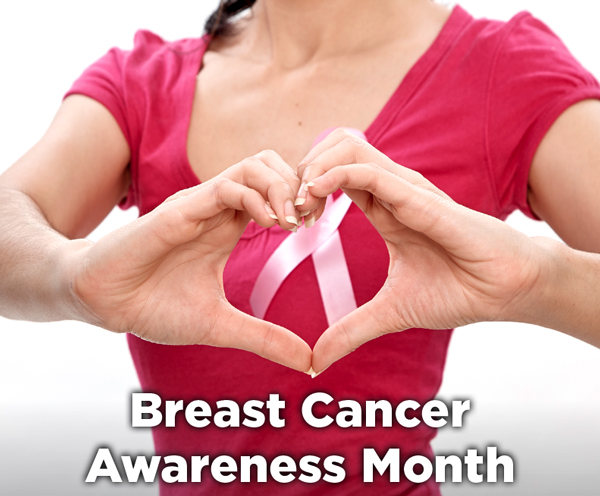Getting on the Right Side of Breast Cancer

By Jennifer Shafer, MSN, Family Nurse Practitioner
October is a dedicated month about two words many women don’t like to hear: breast cancer. Despite that reluctance, it’s important to be informed, because about one in eight women (about 13%) will be diagnosed with breast cancer during their lives.
Over the years, we at the Crawford County offices of Southern Indiana Community Health Care (SICHC) have seen many instances of breast cancer and courageous women have positively faced up to this challenge. Here are some things we’ve learned:
- Did you know that talking about breast cancer can often be one of the most awkward conversations a woman can have? We, like other providers, see a lot of anxiety and sometime paralyzing fear about breast cancer. If a woman feels a lump in her breast, sometimes she’ll hope for the best and not bring it up with her medical provider. The fact? Early detection is one of your best defenses and typically dramatically increases the possibility of life-saving treatment. The point? There’s no need to feel awkward about talking about breast health.
- Speaking of lumps, did you know that only a small percentage of women who develop breast lumps end up being diagnosed with cancer? If and when you see a lump or change in breast tissue, don’t ignore it – bring it up with your physician or provider. They can order a clinical breast exam. The peace of mind it can bring is priceless. Even if the exam indicates cancer, you’re still ahead of the game in a major way.
- Take advantage of free mammograms. Early detection increases the odds of successful treatment and survival. Many hospitals and health centers regularly offer clinical mammograms (usually lost cost or even free) through mobile mammogram units. Ask your provider, check online, or watch the news for schedules.
- Ever hear that mammograms or breast exams cause or spread cancer? It’s a myth that physical breast compression during an exam (whether personal or diagnostic) will cause cancer in the breast to spread. If you’re worried about a clinical mammography, you can take confidence in the fact that experts have documented that mammography radiation risk is very low. The risk is potentially much higher for negative outcomes if a woman declines an exam when symptoms suggest otherwise.
- Another myth is about prevention. Some unfortunately believe that there’s nothing one can do to prevent cancer. Research has shown that practicing healthy habits can reduce risk. We know from experience in this area of Indiana that can be a challenge, but it can be done. Here’s the outline: try to eat five or more servings of fruits and vegetables each day (hint: macaroni and cheese does not count here); try to get in some physical exercise like walking 30-45 minutes 3-4 times a week. More would be great. Don’t smoke and limit drinking alcohol. And, as mentioned before, scheduling regular exams is extremely important. It is generally recommended that every woman aged 40 and over should have an annual mammogram. Women over the age of 21 should regularly practice personal breast awareness and annually schedule a well-woman exam.

